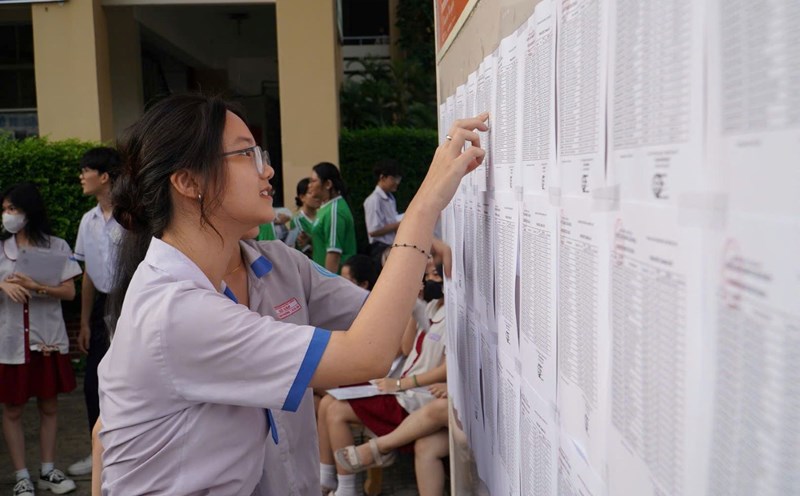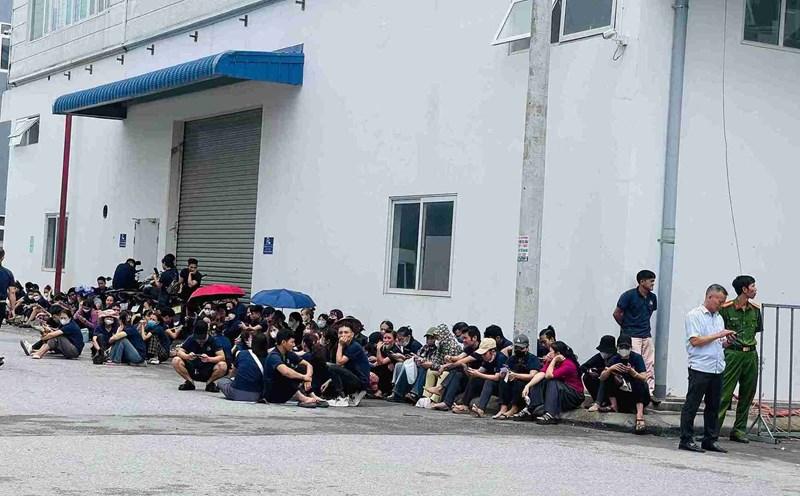Foreign e-commerce platforms must have representatives in Vietnam
On October 7, in Hanoi, the Ministry of Industry and Trade held a meeting of the Drafting Committee of the Law on E-commerce, chaired by Deputy Minister of Industry and Trade Nguyen Sinh Nhat Tan.
Contributing opinions at the meeting, Mr. Ngo Chung Khanh - Deputy Director of the Multilateral Trade Policy Department - stated that when drafting the law, special attention should be paid to the regulation on requiring foreign e-commerce platforms to have representatives in Vietnam.
From the domestic perspective, Mr. Bui Nguyen Anh Tuan - Deputy Director of the Department of Domestic Market Management and Development - focused on Article 41 of the draft, related to specific policies to support vulnerable groups.
"We should not let the regulation stop at propaganda. It is necessary to specify through digital infrastructure support programs, online sales skills training and product consumption connection for cooperatives, farmers, and ethnic minorities" - Mr. Tuan emphasized.
The Deputy Director of the Domestic Market Management and Development Department also said that domestic e-commerce is growing strongly, the rate from 18%/year previously exceeded 30% in the first 9 months of the year, demonstrating the strong spread of the market when there is a policy in the right direction. Therefore, it is necessary to integrate policies to support e-commerce into national target programs to ensure sustainability and synchronization.
Quantifying digital platform criteria
The representative of the Trade Promotion Agency, Ministry of Industry and Trade requested the Drafting Team to clarify and specify a number of important contents in the Draft Law on E-commerce.
Codices related to the concept of big digital platform (Articles 3, 16, 17, 18, 31, etc.) do not have clear qualitative criteria, otherwise the qualitative will be difficult to apply in practice, especially when implementing management, inspection and platform ownership obligations. The Department recommends referring to the criteria already in other documents (Law on Electronic Transactions, Law on Consumer Protection), for example the user threshold (about 3 million people) for unified application, the representative of the Trade Promotion Department stated.
Regarding the "green e-commerce" in Article 39, the representative of the Department said that the draft is not linked to the standards and regulations on "green" or "sustainable", easily leading to each platform setting its own criteria.
Contributing opinions at the meeting, a representative of the Legal Department, Ministry of Industry and Trade said that the regulations in the Draft Law on E-commerce need to accurately reflect the nature of each relationship in this field.
The relationship between service providers and customers is different from the relationship between service providers and state management agencies. Therefore, the law needs to be designed flexibly, both ensuring consumer rights and clearly defining responsibilities, obligations and coordination mechanisms with management agencies - the representative emphasized
In addition, the Legal Department also noted that cross-border services in the agreement do not include e-commerce in the strict sense, if they are only considered normal cross-border services, it will create inequality in tax and legal obligations. The representative of the Department emphasized that it is necessary to ensure the principle of equality, comply with the Constitution and international commitments, and at the same time protect the rights of domestic enterprises in the process of integration and enforcement of the law.
Concluding the meeting, Deputy Minister Nguyen Sinh Nhat Tan requested the Department of E-commerce and Digital Economy to urgently synthesize and concretize the contents that the members of the Drafting Team have commented on to keep up with the working progress with the Economic - Financial Department of the National Assembly.
Regarding the fight against counterfeit and counterfeit goods, the Deputy Minister emphasized the need to clearly stipulate and further strengthen the responsibility of intermediary e-commerce platforms in monitoring goods and services sold on the platform and linking them with the projects to prevent trade fraud and intellectual property issued by the Government.
The Deputy Minister also proposed adding regulations on socializing support sources for e-commerce, especially from e-commerce businesses, considering this both an obligation and a form of marketing to protect the brand and expand the scale. At the same time, it is necessary to focus on reducing compliance costs for businesses through the localization, classification of data and processes, while still ensuring obligations to the State.
"It is impossible to "manage administrative procedures with rice" in e-commerce in the context of digital transformation. The drafting team fully absorbed opinions, promptly completed the draft to report to the National Assembly, towards a stable, feasible and long-term law" - the Deputy Minister emphasized.











